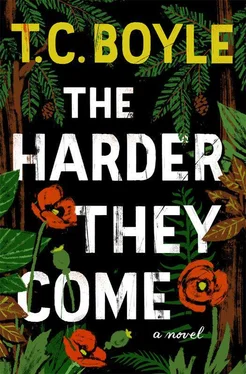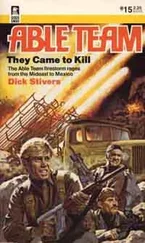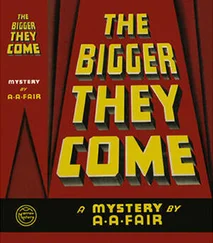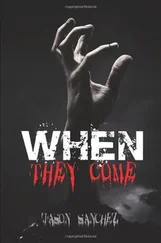And yet still, at odd moments and always while Carolee was out or occupied elsewhere, he couldn’t resist googling his name to see what would come up. Most of the articles repeated the same information (and misinformation, one adding ten years to his age and another spelling his name variously as Sternson and Stevenson), but every once in a while he would find something new, a detail revealed, a tidbit that put everything in a fresh light as if the incident were reconstructing itself for him like a jigsaw puzzle. He was at it one fog-obliterated afternoon, surfing away, the world reduced to the dimensions of the screen in front of him, when he came across an article he’d somehow managed to overlook (or maybe it had just been posted, who knew? — the internet worked in mysterious ways). This was a fuller account of the AP story that had appeared just about everywhere, and as he scanned it, his eyes jumped to the one detail the other reports had left out as if it had no significance at all: the name of the dead man. To this point, he’d been anonymous — the thug, the mugger, the thief — and now he had a name: Warner Ayala . And more: here was his biography, compacted in two lines of print. He was twenty-four years old. A resident of Jamaica Town. He’d built up a long rap sheet of minor crimes from the age of twelve on and he was a suspect in a string of attacks on tourists and local residents alike. Or had been. Warner Ayala. And here was his movie, here was his life.
“Warner,” he repeated to himself, saying it aloud like an incantation, “Warner,” and all at once he was thinking of the parents, the siblings, cousins, grandparents, a father like himself who was mourning his dead son even now. It was as if someone had crept up and struck him a blow from behind, all of it rushing back in that instant, the sun, the mud lot, the fierce unrelenting intimacy of his body entangled with this other one, and he felt so filled with self-loathing and despair it was all he could do to lift his finger to the off button and make the whole thing disappear.
It was three-thirty in the afternoon. The fog sat in the windows. It was very quiet. The blank screen gave him back a ghost image of himself, of his ravaged face and unfocused eyes, the presence still there, still awake and alert and corrosive, even as he pushed himself up from the desk and the world came back to him in all its color and immediacy. Paneled walls. The den. The framed photo of Adam, eleven years old and holding a stringer of half-grown trout aloft with a smile uncomplicated by anything beyond the joy of the moment. Another picture there, of him and Carolee, squinting into the camera against a fierce tropical sun and no older than Adam was now. And another, of his mother, dead twenty years and more, a ghost herself. Next thing he knew he was in the kitchen, washing down a Xanax with a cold beer, and then he went into the living room and started a fire, as much for the cheer as the warmth of it. He felt hopeless. Felt like shit. The pill wasn’t working or the beer or the fire either.
For a long while he just sat there, moving only to stir the coals, the clock on the mantel ticking louder and louder and the fire hissing and the four walls closing him in until some sort of curtain seemed to lift inside him, dark to light, and gradually he began to come out of it. Here he was, still ambulatory, with his mind intact, or mostly so, sitting before a fire in the shingled ocean-view cottage they’d traded up to get — and get at a steal, jumping on it when the recession hit and the values plunged. Even better: he’d finally managed to escape Fort Bragg, winding up here in the religiously quaint little tourist village of Mendocino, population 1,008, where you could get fresh-baked bread every morning and afternoon and the world’s best coffee anytime you wanted. Enough, already — he wasn’t one to feel sorry for himself. What was done was done. Move forward. Shake some pleasure out of life. He got to his feet, groggy from the beer and the pill, but inspired suddenly: he was going to call Carolee and tell her to come home, right away, because he was taking her out to dinner — at the Bistro, the place she liked best.
Her phone rang but she didn’t answer and it went to voicemail. “Call me!” he shouted into the receiver and then rang the number again. She was down in Calpurnia, helping out at the animal preserve there where she liked to volunteer two days a week, but it was getting late — past five now — and they would have fed the animals already, wouldn’t they? Or shoveled up the shit or whatever they did? Maybe she was in the car, maybe that was it. He was trying to picture that, his wife, driving, the fog strangling the headlights, her gray serious eyes fixed on the road, which was slick and wet and deserted, when she picked up.
“Hi, Sten,” her voice breathed in his ear, “what’s up?”
“Where are you?”
“I’m just getting in the car.”
“Good. Great. Because I’m taking you out to dinner at that place you like.”
“The Bistro?”
“Yeah.”
“What’s the occasion?”
“We’re going to celebrate.”
He heard the muffled thump of the car door slamming shut, then the revolving whine of the engine starting up. “Celebrate what?”
“I don’t know,” he said. “I just feel like celebrating. Life, I guess.”
There was silence on the other end.
“You there?”
The faint distant crunch of gravel, tires in motion, then her voice coming back to him: “Sounds fine to me.”
“Okay,” he said, “okay.” Everything was precious suddenly, his life, her life, the lives of the animals and of everybody else out there on the slick wet roads. He felt so overwhelmed he could barely get the words out. “You be careful out there, huh?”
The restaurant was in Fort Bragg, eight miles up the road from Mendocino. It occupied the second floor of a brick building the size of a department store that had once housed the operations of Union Lumber and it was floor-to-ceiling windows all around so that if you got a window table you could sit there and eat and feel as if you were floating over the whole town and the ocean too. Though it was the middle of August and the tourists were out in force, they got a window table without having to wait at the bar because the hostess was a former student at Fort Bragg High and recognized him, though he didn’t recognize her. “Who was that?” Carolee asked, once they were seated.
“Beats me,” he said, looking up at her, feeling good, if a bit shaky still. “At this point, they all look the same to me.”
There were menus, drinks, a basket of hot bread. He went through the bread without even realizing what he was doing, hungry suddenly, though he hadn’t got a lick of exercise all day.
“You are hungry,” she said. “Don’t tell me you didn’t eat any lunch?”
He ducked his head, grinned. “No, I had something.”
“What?”
“I don’t know — a sandwich. Or cereal, a bowl of cereal.” The fact was, he couldn’t really remember. He had a sudden vision of himself laid out flat in a nursing home, gasping for breath, all his vitals dwindled down to nothing. Old man. He was an old man. “But tell me, how was it down there,” he said, to cover himself, “—they get any new zebras in? Or what, giraffes? Or are they fresh out over there in Africa?”
“Same old,” she said. “But really, I don’t know why you have to make fun of them. If it wasn’t for the Burnsides and a handful of people like them, people who care, those zebras and antelope would be gone from the face of the earth.”
“Then why don’t they send them back? Because that’s where they belong, isn’t it? I mean, zebras in Mendocino County — give me a break. What does he think, he’s Noah or something?”
Читать дальше












